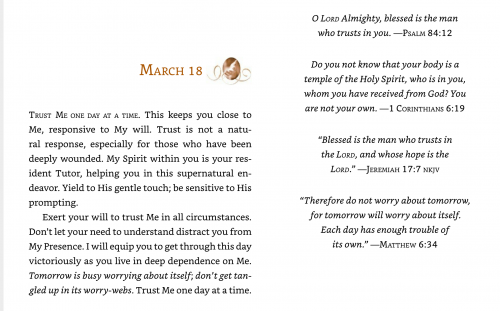Archive for March, 2021
Breaking the Cycle of Violence
March 31st, 2021Opposing Evil without Becoming It
March 30th, 2021The mystery of the cross teaches us how to stand against hate without becoming hate, how to oppose evil without becoming evil ourselves. We find ourselves stretching in both directions—toward God’s goodness and also toward recognition of our own complicity in evil. In that moment, we will feel crucified. We hang in between, without resolution, our very life a paradox held in hope by God (see Romans 8:23–25).
Over the next three days, I share a few examples of women who have understood the mystery of the cross in a personal and embodied way. They have known great suffering; they have been victims of oppression and cruelty and yet they sought to respond consciously, not reactively. Today, I offer a journal entry from Etty Hillesum (1914–1943), a young Jewish woman who was killed at Auschwitz. In her diary, she recreates a conversation with her friend, writer Klaas Smelik, about the hatred and bullying she saw within her own community:
Klaas, all I really wanted to say is this: we have so much work to do on ourselves that we shouldn’t even be thinking of hating our so-called enemies. We are hurtful enough to one another as it is. And I don’t really know what I mean when I say that there are bullies and bad characters among our own people, for no one is really “bad” deep down. I should have liked to reach out to that [bully] with all his fears, I should have liked to trace the source of his panic, to drive him ever deeper into himself, that is the only thing we can do, Klaas, in times like these.
And you, Klaas, give a tired and despondent wave and say, “But what you propose to do takes such a long time, and we don’t really have all that much time, do we?” And I reply, “What you want is something people have been trying to get for the last two thousand years, and for many more thousand years before that, in fact, ever since [humankind] has existed on earth.” “And what do you think the result has been, if I may ask?” you say.
And I repeat with the same old passion, although I am gradually beginning to think that I am being tiresome, “It is the only thing we can do, Klaas, I see no alternative, each of us must turn inward and destroy in himself all that he thinks he ought to destroy in others. And remember that every atom of hate we add to this world makes it still more inhospitable.”
And you, Klaas, dogged old class fighter that you have always been, dismayed and astonished at the same time, say, “But that—that is nothing but Christianity!”
And I, amused by your confusion, retort quite coolly, “Yes, Christianity, and why ever not?” [1]
Richard again: It is a truth of the world’s major religions that the goal of God’s work—God by any name, I might add—is always healing reconciliation and not retributive justice, resurrection and not death.
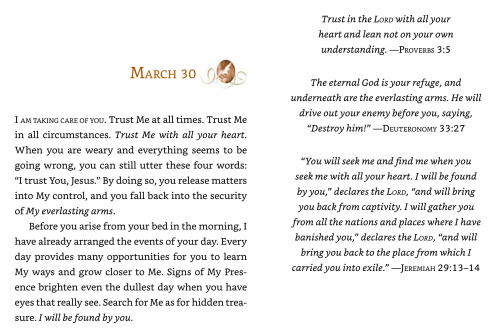
A Temporary Solution
March 29th, 2021The word “scapegoating” originated from an ingenious ritual described in Leviticus 16. According to Jewish law, on the Day of Atonement, the high priest laid hands on an “escaping” goat, placing all the sins of the Jewish people from the previous year onto the animal. Then the goat was beaten with reeds and thorns, driven out into the desert, and the people went home rejoicing. Violence towards the innocent victim was apparently quite effective at temporarily relieving the group’s guilt and shame. The same scapegoating dynamic was at play when European Christians burned supposed heretics at the stake, and when white Americans lynched Black Americans. In fact, the pattern is identical and totally non-rational.
Whenever the “sinner” is excluded, our collective ego is delighted and feels relieved and safe. It works, but only for a while, because it is merely an illusion. Repeatedly believing the lie, that this time we have the true culprit, we become more catatonic, habitually ignorant, and culpable—because, of course, scapegoating never really eliminates evil in the first place. As Russian philosopher Aleksandr Solzhenitsyn wrote, “If only there were evil people somewhere insidiously committing evil deeds, and it were necessary only to separate them from the rest of us and destroy them. But the line dividing good and evil cuts through the heart of every human being.” [1] As long as the evil is “over there,” we can change or expel someone else as the contaminating element. We then feel purified and at peace. But it is not the peace of Christ, which “the world cannot give” (see John 14:27).
Jesus became the scapegoat to reveal the universal lie of scapegoating. He became the sinned-against one to reveal the hidden nature of scapegoating, so that we would see how wrong even educated and well-meaning people can be. This is perfectly represented by Pilate and Caiaphas (state and religion), who both find their artificial reasons to condemn him (see John 16:8–11 and Romans 8:3).
In worshiping Jesus as the scapegoat, Christians should have learned to stop scapegoating, but we didn’t. We are still utterly wrong whenever we create arbitrary victims to avoid our own complicity in evil. It seems it is the most effective diversionary tactic possible. History has shown us that authority itself is not a good guide. Yet for many people, authority soothes their anxiety and relieves their own responsibility to form a mature conscience. We love to follow someone else and let them take the responsibility. It is a universal story line in history and all cultures.
With the mistaken view of God as a Punisher-in-Chief that most Christians seem to hold, we think our own violence is necessary and even good. But there is no such thing as redemptive violence. Violence doesn’t save; it only destroys all parties in both the short and long term. Jesus replaced the myth of redemptive violence with the truth of redemptive suffering. He showed us on the cross how to hold the pain and let it transform us.
The Scapegoat Mechanism
Human nature, when it is seeking power, wants either to play the victim or to create victims of others. In fact, the second follows from the first. Once we start feeling sorry for ourselves, we will soon find someone else to blame, accuse or attack—and with impunity! It settles the dust quickly, and it takes away any immediate shame, guilt, or anxiety. In other words, it works—at least for a while.
When we read today’s news, we realize the pattern has not changed much in all of history. Hating, fearing, or diminishing someone else holds us together for some reason. Scapegoating, or the creating of necessary victims, is in our hard wiring. Philosopher René Girard (1923–2015) calls “the scapegoat mechanism” the central pattern for the creation and maintenance of cultures worldwide since the beginning. [1]
The sequence, without being too clever, goes something like this: we compare, we copy, we compete, we conflict, we conspire, we condemn, and we crucify. If we do not recognize some variation of this pattern within ourselves and put an end to it in the early stages, it is almost inevitable. That is why spiritual teachers of any depth will always teach simplicity of lifestyle and freedom from the competitive power game, which is where it all begins. It is probably the only way out of the cycle of violence.
It’s hard for us religious people to hear, but the most persistent violence in human history has been “sacralized violence”—violence that we treated as sacred, but which was, in fact, not. Human beings have found a most effective way to legitimate their instinct toward fear and hatred. They imagine that they are fearing and hating on behalf of something holy and noble: God, religion, truth, morality, their children, or love of country. It takes away all guilt, and one can even think of oneself as representing the moral high ground or being responsible and prudent as a result. It never occurs to most people that they are becoming what they fear and hate.
This week we enter Holy Week, the days leading up to Jesus’ passion, death, and resurrection. As long as we deal with the real meaning of evil and sin by some means other than forgiveness and healing, we will keep projecting, fearing, and attacking it over there (“scapegoating’’), instead of “gazing” on it within ourselves and “weeping” over it. The longer we contemplate the cross, the more we recognize our own complicity in and profits made from the sin of others. Forgiveness demands three new simultaneous “seeings”: I must see God in the other; I must access God in myself; and I must experience God in a new way that is larger than an “enforcer.” That is a whole new world seen in three dimensions. The real “3-D”!
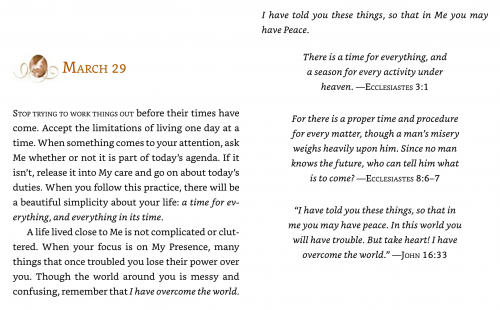
Joining the Prophetic Chorus
March 26th, 2021While the most well-known Hebrew prophets are presumably male, such as Jeremiah, Isaiah, and Ezekiel, the Bible also contains little-known women prophets such as Deborah (Judges 4:4–5), Huldah (2 Kings 22) and Anna (mentioned in Luke 2:36). Rabbi Tikva Frymer-Kensky shares one example of this historical reality:
Unlike priests, generals, judges, and governors, a prophet does not have to be appointed by superiors, and a prophet’s status does not depend on advancement within a hierarchy or on completion of a course of study. As Amos and again Jeremiah inform us, God tells the prophet to speak. Prophecy is a “gift of the Spirit,” offered to whomever God wills, and societies can accept women as recipients of the gift and value them as prophets even as they deny women roles in the official hierarchies of religion and polity. Toward the end of Israel’s history, King Josiah sent his men to see a female prophet, Huldah, to validate the discovery of a scroll in the Temple that called for Israel to behave in ways it had not been observing . . . (see 2 Kings 22:12–14).
It is not surprising to find . . . Huldah accepted as [a] professional prophet. Unlike priests, kings, judges, or administrators, prophets were not born to their role or appointed by a hierarchy. There were cadres of professional prophets, but there were also lone mavericks, called by the spirit of God. . . . In Israel, where God often works through the marginal and brings the peripheral to the center, women appeared as the harbingers of history. [1]
We might know the names of only a few prophets, memorialized in the scriptures and by history, but by the gift of the Spirit, we can all think and act prophetically. We can pay attention to what isn’t right in the world around us and speak and act out of faith and love to change it. Benedictine Sister Joan Chittister, a prophetic voice in our day, encourages us to do just that:
These prophetic people, people just like us, simple and sincere, eager and inspired—these sheep herders like Amos and small-business people like Hosea, these simple country farmers or priests like Jeremiah, these thinkers and writers and dreamers like Isaiah and Ezekiel, these struggling lovers and suffering witnesses like Micah, these brave and independent judges and leaders, like Deborah and Miriam, made no small choices. They chose courage. They chose the expansion of the soul. They chose to stake their lives on what must be rather than stake their comfort, their security, the direction of their lives, on what was. It is that steadfast, unyielding, courageous commitment to the eternal Will of God for Creation—whatever the cost to themselves—that is the prophetic tradition. It sustains the eternal Word of God while the world spins around it, making God’s Word—Love—the center, the axle, the standard of everything the faithful do in the midst of the storm of change that engulfs us as we go.
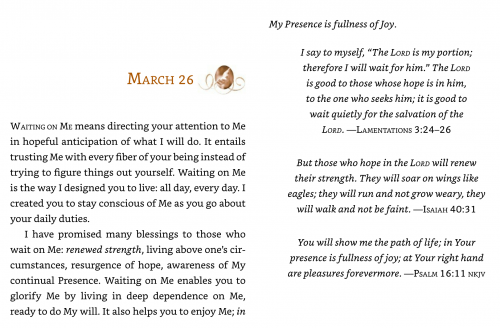
Envisioning a New World
March 25th, 2021One of the most prominent prophets in recent American history is Martin Luther King Jr. Like the prophets of Israel, he saw not just what was wrong with his nation, but how it might be restored to the promise upon which it was founded. The Reverend Dr. Kelly Brown Douglas writes about King’s prophetic vision for racial justice, suggesting that it was made possible by the “moral imagination” he learned through the Black church and faith. She writes:
A moral imagination is grounded in the absolute belief that the world can be better. A moral imagination envisions Isaiah’s “new heaven and new earth,” where the “wolf and the lamb shall feed together,” and trusts that it will be made real (Isaiah 65). What is certain, a moral imagination disrupts the notion that the world as it is reflects God’s intentions. . . . [It] is nothing other than the hope of black faith. Such hope trusts that the arc of God’s universe does in fact bend toward justice. [1]
In his famous “I Have a Dream” speech in 1963, King’s prophetic, moral imagination is on full display:
Even though we must face the difficulties of today and tomorrow, I still have a dream. It is a dream deeply rooted in the American dream that one day this nation will rise up and live out the true meaning of its creed—we hold these truths to be self-evident, that all men are created equal. . . .
I have a dream my four little children will one day live in a nation where they will not be judged by the color of their skin but by the content of their character. I have a dream today!
I have a dream that one day, down in Alabama, with its vicious racists, with its governor having his lips dripping with the words of interposition and nullification, that one day, right there in Alabama, little black boys and black girls will be able to join hands with little white boys and white girls as sisters and brothers. I have a dream today!
I have a dream that one day every valley shall be exalted, every hill and mountain shall be made low, the rough places shall be made plain, and the crooked places shall be made straight and the glory of the Lord will be revealed and all flesh shall see it together. . . .
With this faith we will be able to hew out of the mountain of despair a stone of hope. With this faith we will be able to transform the jangling discords of our nation into a beautiful symphony of brotherhood.
With this faith we will be able to work together, to pray together, to struggle together, to go to jail together, to stand up for freedom together, knowing that we will be free one day. [2]
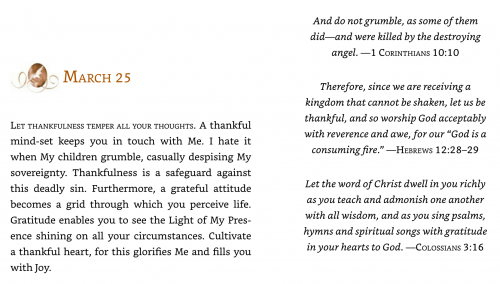
Prophets as Poets
March 24th, 2021One of the great scholars of the Jewish scriptures was Rabbi Abraham Joshua Heschel (1907–1972). In his in-depth study of the Hebrew prophets, he included this description of the prophets which is really rather surprising. We often think of prophets as scolds, rather judgmental and cranky, but Heschel reminds us of their essential gifts of creativity and imagination:
The prophet is a poet. His experience is one known to the poets. What the poets know as poetic inspiration, the prophets call divine revelation. . . . The inspiration of the artist is what is meant by “the hand of the Lord which rests upon the prophet.”
What makes the difference between the prophet and the ordinary person is the possession of a heightened and unified awareness of certain aspects of life. Like a poet, he is endowed with sensibility, enthusiasm, and tenderness, and above all, with a way of thinking imaginatively. Prophecy is the product of poetic imagination. Prophecy is poetry, and in poetry everything is possible, [such as] for the trees to celebrate a birthday, and for God to speak to [humans]. The statement “God’s word came to me” was employed by the prophet as a figure of speech, as a poetic image. [1]
One of the most recent encounters I’ve had with “poetic prophecy” occurred when Amanda Gorman, a young Catholic woman and United States Youth Poet Laureate, wrote and performed a poem for the recent Presidential Inauguration. It seems to me that many of her words connect deeply with words from the Hebrew prophets.
She begins her poem “The Hill We Climb” by asking in the style of the psalms of lamentation, “When day comes we ask ourselves, where can we find light in this never-ending shade?” She then references the sign of the reluctant prophet Jonah: “We’ve braved the belly of the beast; we’ve learned that quiet isn’t always peace.”
She transforms the seemingly unjust decree of Exodus 34:7 that God will “visit the iniquities of the fathers on the children and the children’s children, to the third and fourth generation,” no longer holding God responsible for intergenerational trauma. Like the prophets of old, she holds us accountable for our actions: “we know our inaction and inertia will be the inheritance of the next generation. . . . Our blunders become their burdens” (emphasis mine).
Like the prophet Micah, Gorman reminds us of God’s desire for mercy (see 6:8): “But one thing is certain. If we merge mercy with might, and might with right, then love becomes our legacy, and change our children’s birthright.” With the prophet Zechariah, she envisions a time of peace and plenty when “everyone shall sit under their own vine and fig tree and no one shall make them afraid” (3:10). I encourage you to read and ponder the whole text of her poem. [2]
I know not everyone appreciates or even understands poetry. I will admit it needs to be wrestled with sometimes, but I hope poetry can help us learn to appreciate the creative envisioning the prophets undertake through their relationship with God.
A Positive Vision
March 23rd, 2021The starting point for the prophets’ imagination is an amazing, positive experience of God. Their divine encounter fills their heart not with cynicism, not with sarcasm, not with negativity, not with opposition, but with an ecstasy that has to be shared. That one experience of the Absolute is so absolutizing that it effectively relativizes everything else, including the religious trappings of the Temple, the priesthood, and even sacred texts. Rabbi Nahum Ward-Lev describes the experience of one of the earliest Hebrew prophets:
God also gave Amos a positive vision, an instruction for how the people can preserve themselves and their communal life:
Seek the Living Presence and you shall live. . . . Seek [God] who made the Pleiades and Orion and turns the deep darkness into morning and makes the day darken into night. . . . Seek good and not evil, that you may live. . . . Hate the evil and love the good and establish justice in the gate (Amos 5:6, 8, 14, 15).
Amos, animated by the grave understanding that the present order cannot stand, also bears an alternative vision for the future: seek the Living Presence, seek good and not evil that you may live. Burdened and energized, he leaves his flock behind and sets out for Beth El to bring God’s word. The shepherd of Tekoa heads north in the name of the Shepherd of Israel.
Amos embodies the qualities found in all the writing prophets in the Hebrew Bible. The prophets are people who are imbued with God’s love for creation and consequent passion for justice. The encounter with this love and concern brings forth from the prophet the courage to face what others turn away from—the unsustainability of a society that oppresses the poor. At the same time, the soaring possibilities present in God’s loving attention to the world fires the prophet with the imaginative power to present the people with an alternative, life-giving future. Engagement with divine love, courage to condemn oppression, and imagination to envision an alternative future are three qualities that define the prophetic experience.
The work of the prophets is not done, nor will it ever be, but the example of Jesus and the experience of Christ in our midst empowers us to be prophets in our own time. Rabbi Nahum, who leads a multi-faith sacred community in nearby Santa Fe, New Mexico, urges us to find our own prophetic work:
While most of us are not yet prophets, we also know the presence of a great love, a love that includes the entire world. Awakened by that love, we too are aggrieved in the face of human oppression. A voice within us calls out, “This is wrong and cannot stand.” We yearn for a world in which all can flourish. Fueled by our own particular yearning, we occasionally entertain visions for how some small part of our world can be liberated into greater possibility.
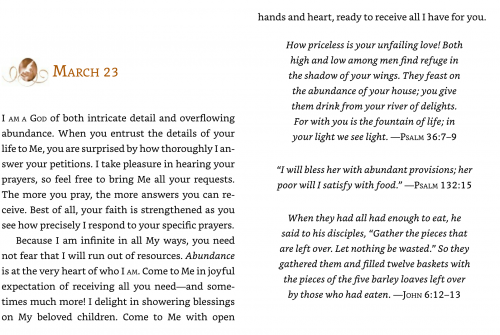
The Path of the Fall
March 22nd, 2021
In spirituality, there are basically two paths, what I’ve called the path of the fall and the path of the return. The path of return has been the message of the priestly class. True priests talk of religion, communion, love, transcendence, connecting this world with the next, and generally offering a coherent world of meaning. In contrast, the path of the fall is directed and legitimated by the prophets, who teach us how to go into our shadows creatively and how to lose gracefully. They teach us how to let go and let things fall apart without fear.
The role of the prophet is to lead us on an individual and collective level through the necessary deconstruction of what I would call the false self. The prophet’s path is of descent and is never popular or easy. It is about letting go of illusion and toppling false gods. People usually like priests, which is why they are established and comfortable in almost all cultures, but the prophets are almost always killed.
The prophets are disrupters of the social consensus. What everybody is saying, whatever the glib agreement is, prophets say, “it’s not true.” They do this primarily by exposing and toppling what the Hebrew Scriptures called idols, things that are made absolute that are not absolute. The tendency of religion is to absolutize. I’m sure it comes from a deep psychological need for some solid ground to stand on, but the prophets remind us that God is the only absolute. And don’t try to make the institutions of God absolutes either! Jeremiah said, “The Temple, the Temple, the Temple, don’t you get tired of talking about the Temple?” (see Jeremiah 7:4) This was a good Jewish man who surely loved the Temple but recognized that it, too, had become an idol.
Through Jeremiah, God reminded them: “In speaking to your ancestors on the day I brought them out of the land of Egypt, I gave them no command concerning burnt offering or sacrifice [in the Temple]. This is rather what I commanded them: Listen to my voice; then I will be your God and you shall be my people. Walk exactly in the way I command you, so that you may prosper” (Jeremiah 7:22–23).
I hope we can sympathize with the people of Israel who so often rejected their prophets. It’s scary whenever we’re offered a new synthesis or paradigm, especially for those who are heavily invested in the old. Opposition will rise, just as it rose around Jesus. People inside the status quo usually have much to lose. They don’t necessarily have ill will; it’s just that they’re living in the only world they’ve ever imagined. Perhaps my favorite understanding of prophets is that they’re lovers of spiritual freedom who keep humanity free for God and God free for humanity. It is harder than you think.
On the Edge of the Inside
In the fall of 2020, I began sending out occasional letters that I called “Letters from Outside the Camp,” a reference to the many usages of “outside the camp” in the Hebrew Bible. It is a prophetic position “on the edge of the inside,” which is described by the early Israelites as “the tent of meeting outside the camp” (Exodus 33:7). Even though this tent is foldable, moveable, and disposable, it is still a meeting place for “the holy,” which is always on the move and out in front of us. The free and graced position found in the tent of meeting is what allowed Jesus and all prophets in his lineage to speak from the privileged minority position. It is always less desirable, compared to the comfortable and enjoyable places at the center and the top; yet it is the Jesus stance, and the place where all Franciscans follow after him.
The prophet exercises his or her imagination from that place of freedom, as my favorite Scripture scholar Walter Brueggemann describes so well: “Because the totalism [that is, the system] wants to silence, banish, or eliminate every such unwelcome [prophetic] intrusion, the tricky work is to find standing ground outside the totalism from which to think the unthinkable, to imagine the unimaginable, and to utter the unutterable.” [1]
The “tent of meeting” is the initial image and metaphor that eventually became our much later notion of “church.” The greatest prophet of the Jewish tradition, Moses, had the prescience and courage to move the place of hearing God outside and at a distance from the court of common religious and civic opinion—this was the original genius that inspired the entire Jewish prophetic tradition. It is quite different than mere liberal and conservative positions, and often even at odds with them. Prophecy and Gospel are rooted in a contemplative and non-dual way of knowing—a way of being in the world that is utterly free and grounded in the compassion of God.
It inspires me to wonder how we might maintain that same sense of prophetic freedom outside the contemporary political and religious “encampments” of our day. For those of us who are sincerely and devotedly trying to camp elsewhere than in any political party or religious denomination, we know full well that we must now avoid the temptation to become our own defended camp.
Somehow our occupation and vocation as believers in this time must be to first restore the Divine Center by holding it and fully occupying it ourselves. If contemplation means anything, it means that we can “safeguard that little piece of You, God, in ourselves” as Etty Hillesum describes it. [2] What other power do we have now?
God’s Love Is Evolutionary
March 19th, 2021Ilia Delio, a Franciscan sister and scientist, and a friend, reflects on love as the heart of the universe.
To see the universe through the eyes of love helps us make sense of evolution, not as a process of cold, blind chance or randomness, but one of passion, yearning, novelty, union, gift, suffering, death, and new life. Love is the faithful heart of the cosmos, the constancy of all life; yet love seeks to become more being-in-love and hence is the energy of change. . . . The name “God” points to this mystery of love in its unlimited depth, the center of all that is; love that overflows onto new life. God is not a super-natural Being hovering above earth, but the supra-personal whole, the Omega, who exists in all and through all (RR-emphasis mine). God is love—eternal, divine, overflowing, personal love. Love goes out to another for the sake of the other and manifests itself in relationship. Divine love is personally relational—Trinity: Lover, Beloved, and the Breath of Love. Divine Love, breathed forth into Word incarnate, marks the history of evolution. . . . Every star, every galaxy, every leaf and bird breathed forth in Divine Love, reveals the Christ who is the personal unity of divine being-in-love. From all eternity, God has sought to love another, to be love in another, and to be loved by the other forever—this other is the Christ who is the aim and purpose of this evolutionary universe.
. . . Evolution is not only the universe coming to be, but it is God who is coming to be. Divine Love, poured into space-time, rises in consciousness and erupts in the life of Jesus of Nazareth, becoming the pledge of our future in the risen Christ: “I am with you always until the end of the world” (Matthew 28:20). We can read the history of our 13.7-billion-year-old universe as the rising up of Divine Love incarnate, which bursts forth in the person of Jesus, who reveals love’s urge toward wholeness through reconciliation, mercy, peace and forgiveness. Jesus is the love of God incarnate, the wholemaker who shows the way of evolution toward unity in love. . . . In Jesus, God comes to us from the future to be our future. . . .
Christian life is a commitment to love, to give birth to God in one’s own life and to become midwives of divinity in this evolving cosmos. We are to be wholemakers of love in a world of change (RR emphasis).
This is why I (Richard) say we need to switch our thinking from “Jesus came to fulfill us” to “we have come to fulfill Christ.” We are a part of this ever-growing cosmic Christ that is coming to be in this one great big act of giving birth described in Romans 8:22. [1]
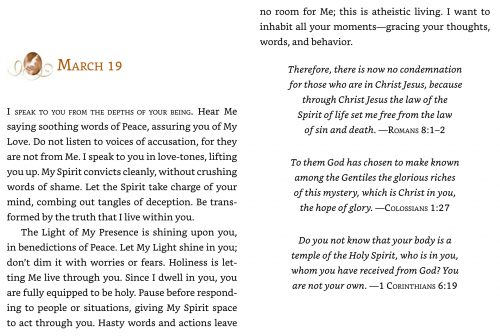
The God of Welcome
March 18th, 2021The Rev. Stephanie Spellers is a leader in the Episcopal Church, working with Bishop Michael Curry to spread a message of God’s inclusive and expansive love. She tracks how we move from a love of self, and those like us, to a generative love for all:
Looking closely at the witness of Scripture, we see a God who not only seeks relationship and union with the creation but who reaches out intentionally for everyone, and in particular for the outcast. Regardless of how unclean, unworthy, insignificant, or marginalized we may feel or others may claim we are, the God of grace and welcome shatters every barrier to embrace us and draw us home.
Lest we think the welcome is meant for us or our group alone, the Scriptures are filled with reminders to God’s chosen ones that they are not the only ones God welcomes. In Deuteronomy, Moses speaks to the Israelites as they journey from slavery in Egypt and through the wilderness. The frightened, tired and confused clan no doubt sought comfort in the knowledge that their covenant with God made them special. They soon learned that there is no rest for God’s chosen ones. Instead, God’s people are called out for a special mission.
The Lord your God is God of gods and Lord of lords, the great God, the mighty and awesome, who is not partial and takes no bribe, who executes justice for the orphan and the widow, and who loves the strangers, providing them with food and clothing. You shall also love the stranger, for you were strangers in the land of Egypt. (Deuteronomy 10:17–19)
It is true that God stands with God’s people through every trial, but not so that they will sit comfortably with the privilege of apparent divine favor. Now they have to stand in solidarity with, graciously receive and welcome the vulnerable ones within their community and beyond it whom they might find it most difficult to accept: the orphan, the widow, the stranger, The Other. God has done it for them. Now they are called to respond in kind, literally imitating the God who graciously welcomed them. . . .
Is not this the fast I choose: to loose the bonds of injustice, to undo the thongs of the yoke, to let the oppressed go free and to break every yoke? Is it not to share your bread with the hungry, and bring the homeless poor into your house; when you see them naked, to cover them, and not to hide yourself from your own kin? (Isaiah 58:6–7)
God has made it clear: if you love me you will work for liberation with the oppressed and marginalized in your midst, and you will share your home and food with those who have none. You will not hide from the brothers and sisters I have placed near you. Rather, you will actively go out to meet them and draw them to yourself, even if it is risky, even if you feel uncomfortable.
